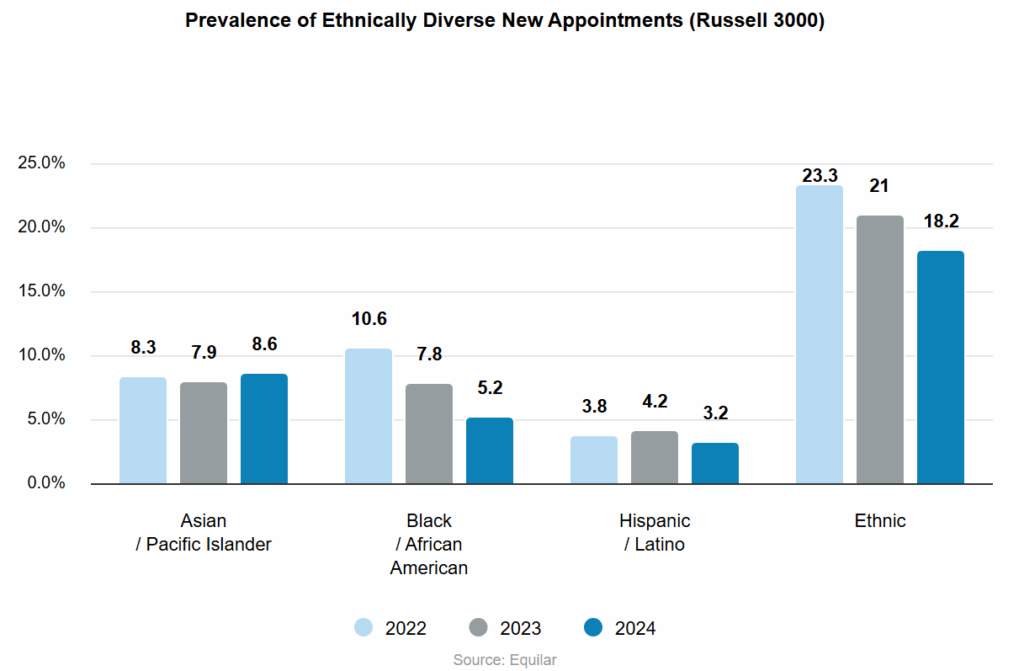Ethnic Representation in New Russell 3000 Director Appointments Has Fallen 22% Since 2022
Summary
New data from Equilar on Russell 3000 board appointments shows a marked slowdown in ethnic diversity among newly appointed directors. The share of ethnically diverse individuals filling new board seats dropped from 23.3% in 2022 to 18.2% in 2024 — a 21.9% decrease. The decline is driven largely by steep falls in Black/African American and Hispanic/Latino appointments, while Asian/Pacific Islander appointments rose modestly.
Although the overall prevalence of ethnically diverse directors rose 13.7% between the end of 2022 and 2024, year-over-year progress stalled: representation edged down 0.5% from 2023 to 2024. Sector variation is notable — utilities and technology show comparatively higher ethnic representation, while energy lags behind.
Key Points
- Ethnically diverse new board appointments fell from 23.3% (2022) to 18.2% (2024), a 21.9% decline.
- New Black/African American director appointments fell 33.3% from 2023 to 2024 and are down more than 50% versus 2022.
- Hispanic/Latino new appointments declined 23.8% from 2023 to 2024.
- New Asian/Pacific Islander appointments increased 8.9% in 2024, and Asian/Pacific Islander directors saw the largest gain in overall representation since 2022 (5.6% to 6.7%).
- Overall ethnic representation grew 13.7% between 2022 and 2024 but slipped 0.5% year-over-year from 2023 to 2024.
- Sectors differ: utilities have the highest share of Black/African American directors (12.2%); technology leads sector-specific ethnic representation at 23.8%; energy is lowest at 14.8%.
Context and Relevance
This analysis matters because board composition shapes strategy, risk oversight and investor signals. The fall in new ethnically diverse appointments coincides with political and regulatory shifts — notably actions limiting DEI programmes in the federal sphere — that appear to be influencing corporate behaviour. For governance professionals, investors and DEI advocates, the data suggests potential backsliding in efforts to broaden board talent pipelines, with particularly acute declines for Black/African American and Hispanic/Latino representation.
Sector differences indicate that some industries maintain better progress than others, but the overall slowdown could affect long-term board diversity goals and corporate performance outcomes tied to inclusive decision-making.
Why should I read this?
Quick, no-frills take: the pace of adding ethnically diverse directors at Russell 3000 companies has noticeably slowed — and that slowdown is concentrated among Black and Hispanic appointments. If you care about board quality, investor expectations or regulatory trends, this is worth your attention. We dug through the numbers so you don’t have to — read the detail if you want the specifics on who’s been affected and which sectors stand out.
